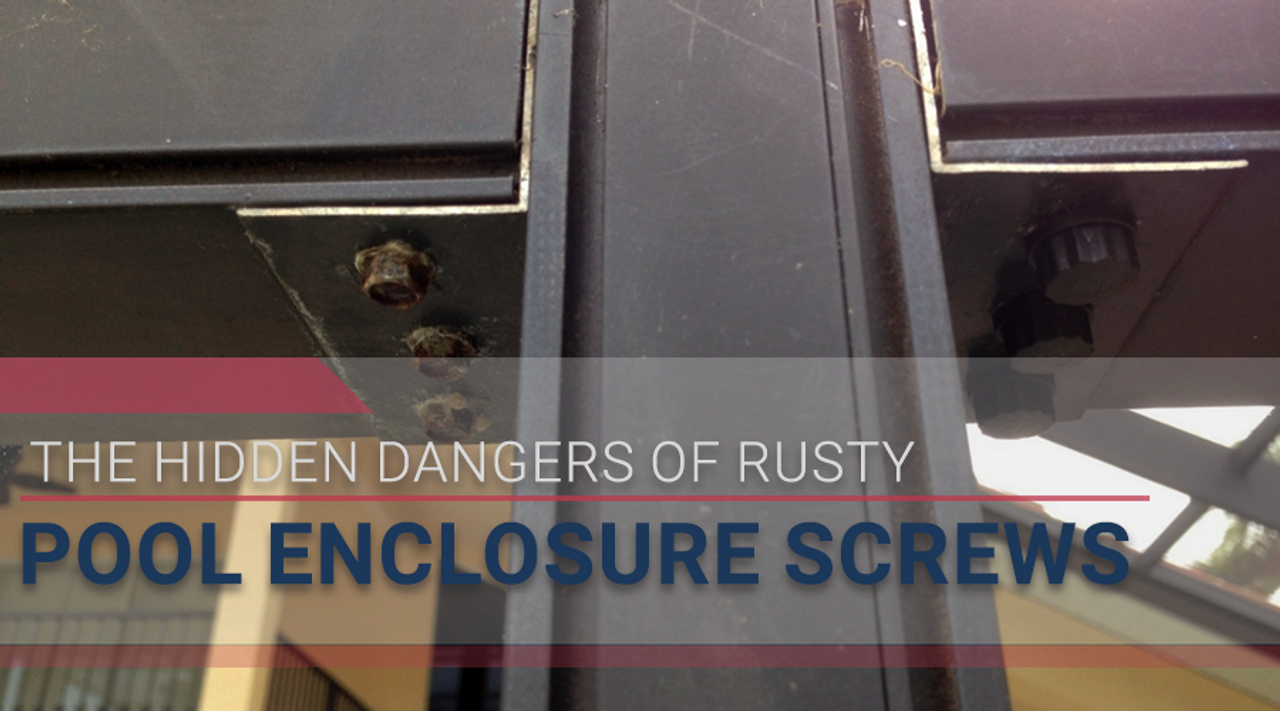Your pool enclosure is designed to provide comfort, safety, and peace of mind. But when the screws holding it together begin to rust, it can quickly become more than just a cosmetic problem. Rusty fasteners can weaken the structure, shorten its lifespan, and even put your family’s safety at risk. The good news? With the right maintenance and quality fasteners, you can prevent these issues before they start.
Why Rusty Screws Are a Big Problem
Rust doesn’t just make screws look unsightly. Once corrosion begins, it spreads quickly, eating away at the metal and compromising its strength. That means your pool cage could loosen, shift, or even collapse under strong winds or storms. What starts as a few discolored screws can turn into an expensive repair—or a complete rebuild.
Common Causes of Rust in Pool Enclosures
-
Salt Air Exposure—If you live near the coast, salty air accelerates corrosion.
-
Humidity and Rain—Florida’s climate (and other humid regions) is tough on unprotected screws.
-
Damaged Coatings—Even coated screws can rust once the coating is scratched during installation.
-
Cheap Materials—Low-quality fasteners may save money upfront but fail much sooner.
How to Spot Early Signs of Rust
Catching rust early can save you from major repairs. Look for:
-
Brown or orange streaks around screw heads.
-
Loose or wobbly frame connections.
-
Screws that snap or strip when tightened.
-
Discoloration around aluminum members.
How to Prevent Rust from Taking Over
-
Choose the Right Fasteners—Invest in corrosion-resistant fasteners designed for harsh weather conditions.
-
Regular Inspections—Walk your pool enclosure every few months to check for early signs of rust.
-
Replace, Don’t Ignore—Swap out failing screws as soon as you spot them.
-
Upgrade to Protective Systems—Use fastener protection systems that block electrolysis and extend the life of your enclosure.
-
Keep It Clean—Wash down your pool enclosure to remove salt and dirt that speed up corrosion.
Long-Term Benefits of Rust Prevention
When you use quality fasteners and maintain your enclosure, you’re not just protecting against rust—you’re extending the life of your outdoor space. You’ll save money on costly repairs, enjoy a safer structure, and have peace of mind knowing your enclosure can withstand the elements year after year.
Key Takeaway: Rusty screws aren’t just an eyesore—they’re a structural risk. By investing in the right fasteners and taking proactive steps, you can keep your pool enclosure safe, secure, and rust-free for the long haul.

